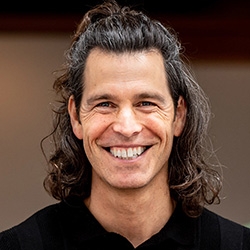

Search Results: cooperation
-
-
Learn practical ways to live compassionately through hands-on exercises and demonstrations.
-
By guessing our child's feelings and needs we open the door to understanding what's behind their behavior, and can better suggest solutions that meet both their and our own needs. In this way we build trust and their desire to seek us out in times of need. Expressing our own feelings and needs also allows us to help them understand the value in fulfilling tasks or requests.
-
Inbal answers a parent's question about praise and offers a perspective on how praise translates into the NVC framework.
-
Explore what blocks us from speaking truth and how honesty builds trust and growth.
-
Perhaps human violence persists because we believe that violence is inevitable and there's nothing we can do about it -— even though there is notable evidence that this is likely not true. Read on for some research and theory on how cultures evolve to be collaborative or violent. Plus, learn benefits of collaboration and downsides to force, punishment, and control. These provide implications for how we might move towards a culture of more peace.
-
Trainer Tip: Sometimes the expression of our needs can sound like demands or criticism. This can make it harder for people to want to contribute to us. Today, pay attention to how you express your needs. Find ways to release the emotional charge.
-
Want to manage more effectively with more ease and joy and get your staff to make changes? The first, crucial step is to learn how to change your behavior to impact what's happening. For example, we can get the inner clarity we need to reframe questions we ask ourselves, recap, make clear requests, give concrete feedback, etc. This article expands on how self-management can increase influence...
-
Ask the Trainer: "Fairness" isn't on the needs list. What needs might be underneath it?
-
The American mythos of Independence Day is that liberty, equality, and opportunity are for all. Yet since the country's formation, these needs have been for some at the expense of others. It started with the brutal robbery and genocide of Native Americans and slavery of Africans. And this theme continued for generations in various forms, including how we related to other peoples, countries, and the ecosphere. To achieve true justice, liberty, and opportunity for all we may need to overcome the ego's sense of separation. Compassionate noncooperation may also be key.
-
One thing that makes empathic understanding difficult yet valuable is that it can be humbling. If I really open myself to hearing and understanding, while trusting my inner strength of self-knowing, I may be changed by what I hear. My core beliefs or understanding might change and grow. This openness could be key to transforming the energy of conflict into new possibilities for greater connection, creativity, and well-being.
-
- Discover how mediation is a fundamental social skill that everyone can learn
- Gain the skills to stay centered when a conflict becomes heated
- Learn how to lead a dialogue toward sustainable agreements
- Help facilitate connection and creativity to discover and meet everyone’s needs
-
Anger and resentment can signal unmet needs. Through mourning those needs and practicing self-empathy, we may let go of blame, embrace reality, and reclaim responsibility for fulfilling our own needs. This process may lead to emotional transformation through conscious reflection, and a new outlook.
-
There are many polarizing issues we can resist and fight over. The word "resistance" can mean fighting against what we don’t agree with in counterproductive ways. It can also be the illusion and futility of mentally fighting against reality of 'what is'. But acceptance, non-resistance, of what is doesn’t mean powerless resignation. Another way to resist is to accept and love whole-heartedly, with empathy and care for the people doing the things we are resisting.
-
- Understand the dynamics of power struggles
- Explore practical strategies for navigating power imbalances
- Discover ways you can share power in various relationships
- Explore how NVC supports a move away from domination, into shared power
-
Yoram Mosenzon suggests that when we make positive language requests, we tell people what we want. We give them an image of what would make life more wonderful. What we usually do is tell people what we do not want. This tends to create resistance.
-
Shared story has been a way for groups to unite in opposition to a common enemy. But more divergent and virulent beliefs/stories swirl through the internet and social media, facilitating people to polarize against one another. So notice when you're caught in a polarizing story; try shifting focus to observing your mind; somatic presence; underlying commonality; consciousness as universal need, energy, and spaciousness; and the natural compassion and generosity that flow from this.
-
Total inclusion is impossible: inclusion of all can often lead to exclusion of those who can't bear the behaviors of some. Many groups flounder and disintegrate because of too much inclusion. Limited resources and capacities may make it necessary to exclude. Keeping more coherent shared values and strategies may be another reason to place membership conditions so that what appears to be exclusion may give movements a chance to expand.
-
-
Learn to foster trust, peace, and cooperation in your family using Nonviolent Communication.

Quick Links
Subscription Preferences
Stay In Touch!
Looking for ways to keep up with NVC Academy news, get special offers, free resources, or words of inspiration? Here are five ways to stay engaged:



















